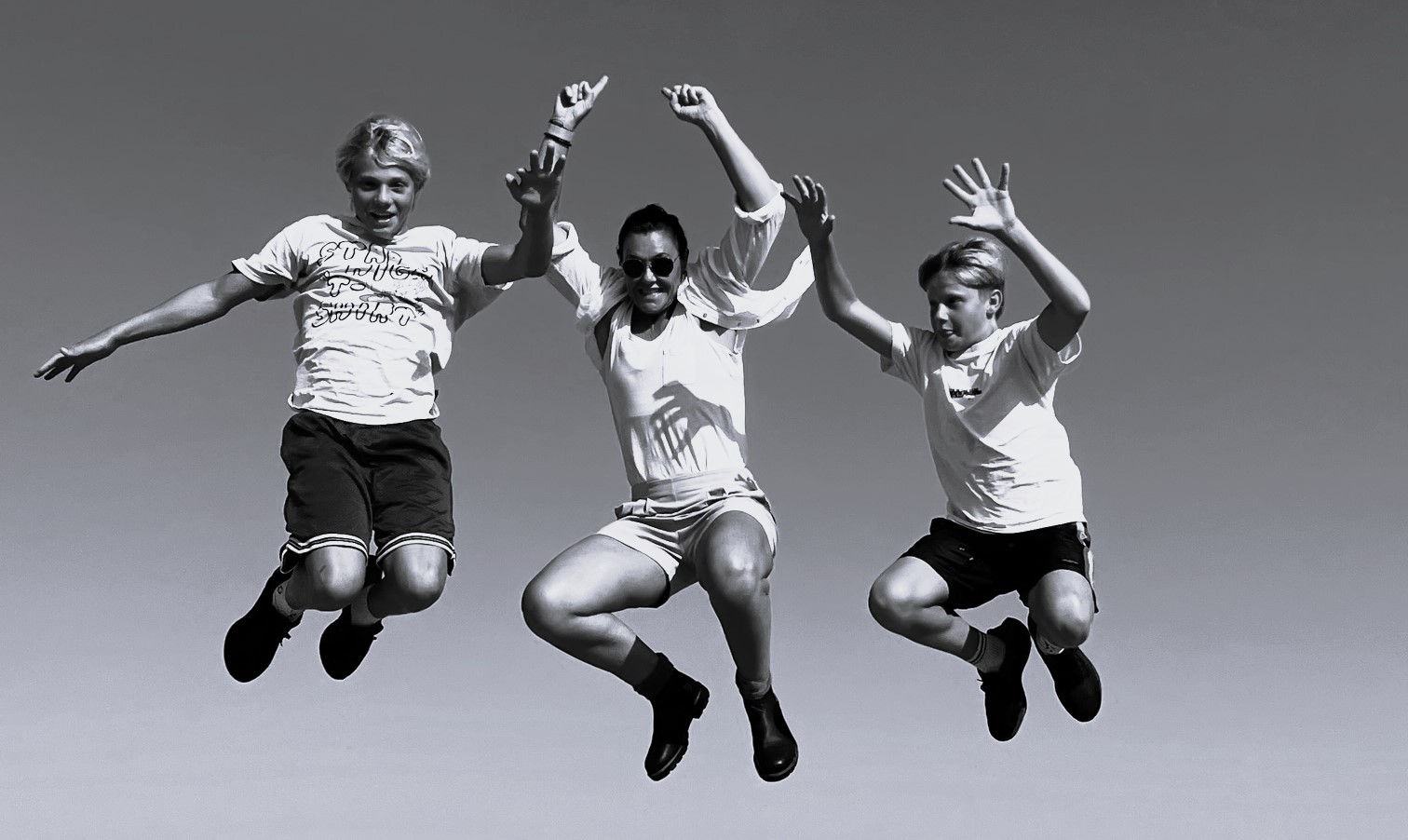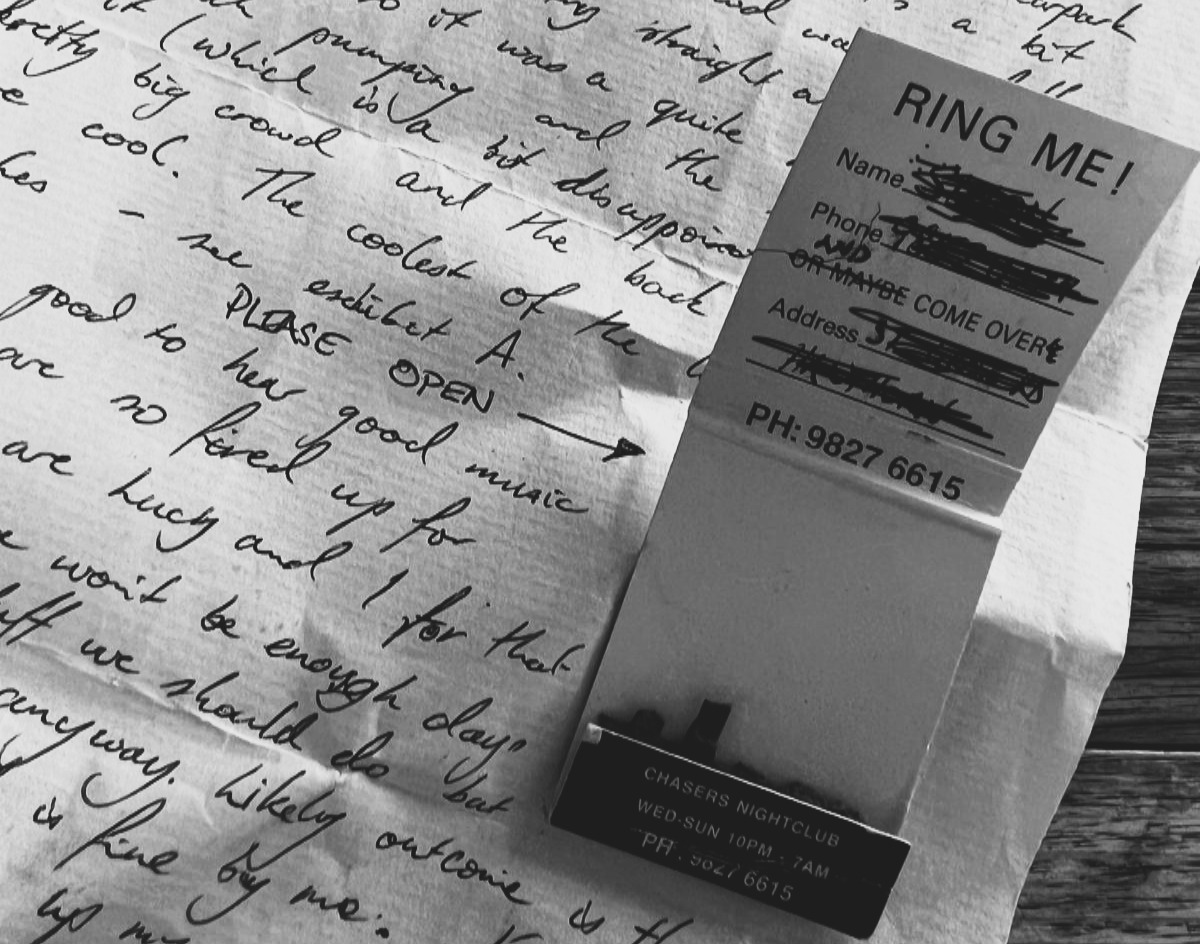I confess I am a total geek when it comes to my own health, mindset, recovery and performance. I monitor my HRV and stress levels, I’m meticulous about my sleep, I pay attention to my macros, limit alcohol, track my cycles, optimise my gut health; I work with a functional medicine specialist and experiment with an ever-changing regime of supplements. I test all the latest recovery protocols and implement the ones that work for me. I’ve even had my DNA tested this year so I can optimise my lifestyle, nutrition, physical health and mental fitness habits to suit the nuances of my unique genomic profile.
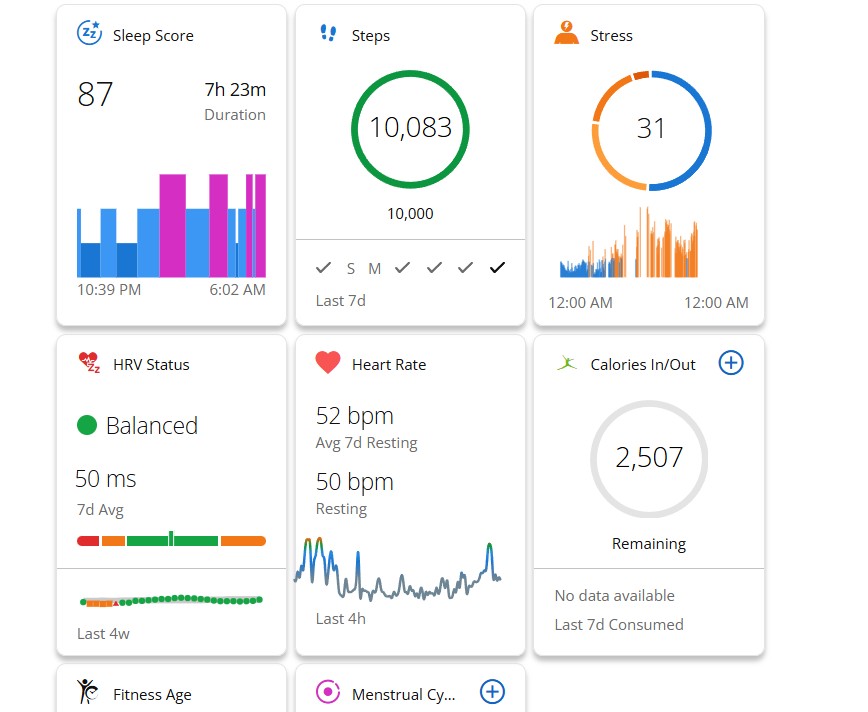
I do all this in service of feeling ridiculously well, clear-minded, grounded, energetic and vibrant. Health and wellbeing are my top core values. I want to show up and perform every day as the very best version of me – for myself, for my kids, for my family, for my clients, and for my friends. For life.
I’ve always been obsessed with human performance. As an Olympic athlete, it was the air I breathed. Every aspect of my day – sleep, training, psychology, nutrition, recovery, focus – was tracked, measured, and optimised in the pursuit of world-best performance. We didn’t just leave things to chance. We controlled every controllable so we could train at the very edge of our capability and perform under pressure on the world stage.
Back when I was an athlete, there was a quote I had stuck to my wall that I read every morning before heading to training: “Successful Olympic performance depends on doing many things right on a consistent basis and in an integrated fashion.” That wasn’t just a mantra. It was the system. From daily recovery markers and hydration tracking to technical video review and race-day planning down to the minute, nothing was left to chance. Data guided every decision.
That discipline and obsession didn’t disappear when I stepped off the water. If anything, it intensified as I grappled with how to apply that same approach to life and to the world of work.
My obsession with human performance, optimisation and high-performing teams is what drew me to a career in HR after sport. I thought maybe I could bring elite-athlete precision and purpose into the workplace. Maybe I could apply my background in high performance environments to help people and teams thrive at work – not just survive.
And for a long while, I believed in the mission.
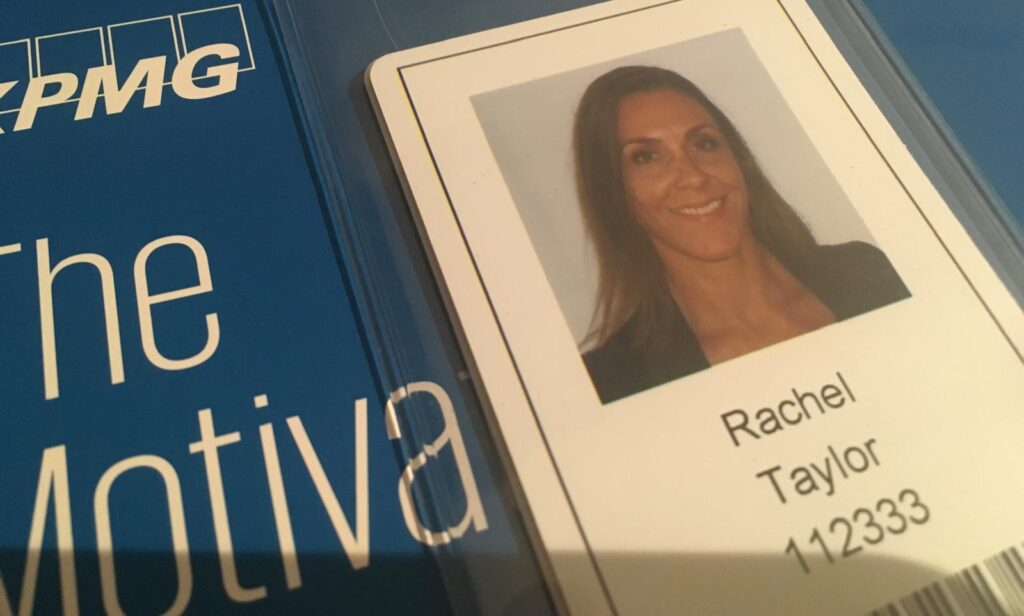
I spent nearly two decades in senior HR and leadership roles; trying to support humans to perform in systems that ultimately weren’t designed for them to thrive in. I did my best to develop wellbeing programs and drive engagement initiatives. I championed mental health and better leadership conversations. I coached people managers to lead with empathy, vulnerability and courage.
HR tech tools promised a lot but often delivered more noise than insight. Retroactive engagement surveys. Dashboards with dodgy data. Annual performance rankings. All lagging indicators describing the past; often toothless tigers when it came to shaping the present. Clunky and disjointed systems that rarely delivered the insight that was needed in real-time to change behaviours, elevate performance, or significantly improve the employee experience.
When COVID hit, the cracks I’d felt for years blew wide open. Burnout surged. Mental health nosedived even further. We did our best with the tools we had – but they simply weren’t fit for purpose. It felt like we were sticking Band-Aids on a haemorrhage.
As time passed, it started to feel more and more like I was constantly pushing sh*t uphill. The system of work was working against us. It felt like a race to the bottom. How lean a headcount could we operate with? Did we really need to replace the person who resigned? How efficiently are we utilising the headcount we already have, surely they could take on more? Could we rein in the salary increase budget again this year?
In HR, you’re behind closed doors every day, face-to-face with the raw human impact – supporting leaders and employees who are stumbling, stretched, and struggling to cope. I was constantly cleaning up the human fallout, and it didn’t sit right. For me, HR started to feel like a conflict with my personal values and ethics. I began seeing things differently – feeling increasingly uneasy about how the system was affecting the people in it.
This wasn’t high performance and the people weren’t thriving.
Is the system of work completely broken?
Let’s get real here: no, the system wasn’t broken. It was working exactly as this current version of capitalism intended. In this system, humans have always been the secondary metric to profit. People are not always seen as individuals with biological rhythms, lifestyle needs and the potential for happiness and health – but rather as human units of production. An hourly charge-out rate. A line on a spreadsheet. A cost centre fee-generating input. Utilisation rates, billable hours, and growth-at-all-costs mentalities can easily dominate decision-making when the only real KPI is revenue.
It’s a system built to extract effort, not cultivate wellbeing or long-term sustained performance. Meanwhile, the culture still quietly celebrates overwork. Yes, we’re getting better at challenging that, but leaders’ actions still speak louder than their words. We measure outputs without ever truly understanding or honoring the inputs. In the end, the system still rewards burnout, not brilliance.
I know, I know. I sound like a bleeding-heart-leftie-socialist. What the hell did I expect, working all suited-up in corporate HR? Well, not this…
Today’s workers aren’t just working longer; they’re working always.
Microsoft’s 2025 Work Trend Index shows 40% of us check emails before 6am. Nearly a third are back online by 10pm. We’re interrupted every two minutes – 275 times a day – by pings, meetings, and messages. Focus is shattered. Innovation dries up. Engagement plummets. Welcome to the infinite workday; and the ideal conditions for burnout.
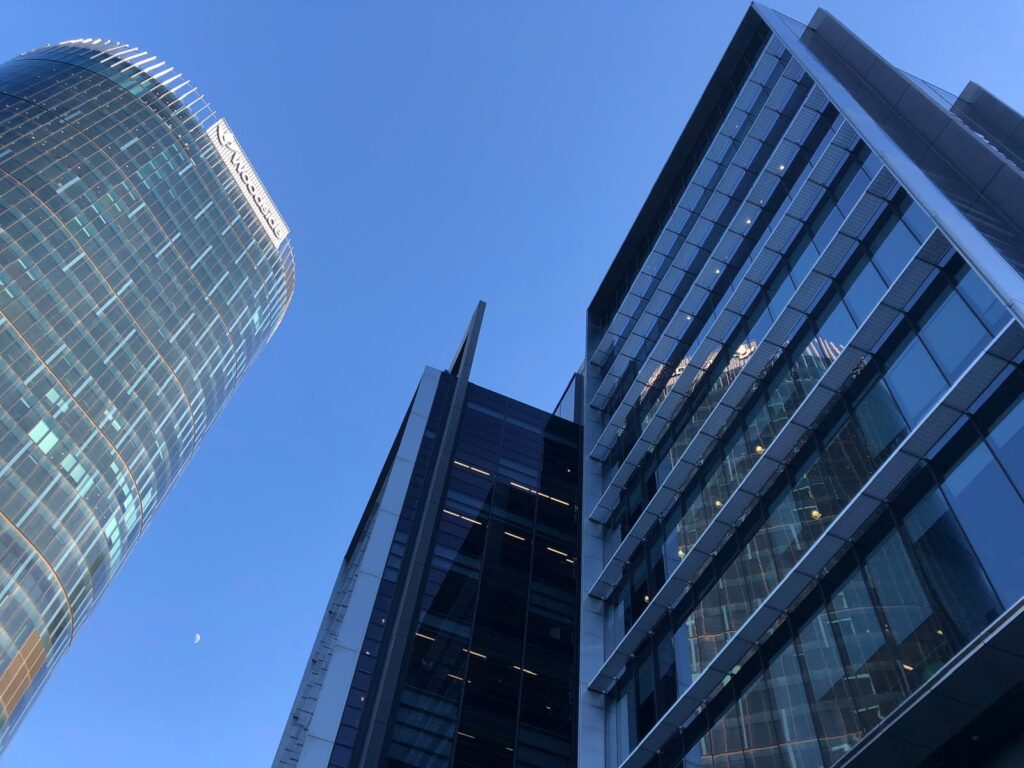
And unlike elite sport, in most workplaces there are little to no objective performance diagnostics. No sophisticated feedback systems. No real-time wellbeing or recovery data. We are largely flying blind. Often the best we can hope for is asking overworked people managers to ‘sense check’ how their people are coping with the ever-increasing workload.
By the time I left HR in 2024, I was depleted. I’d given it everything, but I no longer believed I could drive meaningful change from within the system. I was existentially burnt out and deeply disillusioned. So I stepped back – to recover, recalibrate, and quietly redesign my next chapter.
After much soul-searching I tapped my true purpose and built a coaching practice to help individuals reinvent themselves, navigate transitions, and optimise their wellbeing. I thought: this is it now. I’m finally going to use all my powers for good – creating positive, healthy impact, one life at a time.
Then in 2025 I met Will Mellors-Blair.
And everything changed.
I’d already been geeking out (as I tend to do) on all things AI – devouring expert podcasts, reading AI-2027 and The Intelligence Curse, and soaking up everything I could about how humans and technology might meaningfully coexist. I was curious – could this technology actually be a force for good in the world? And then Will told me what he and his co-founder, Martin Sandhu, were building at Mindora.
It stopped me in my tracks and altered my views – on everything.
I started to feel genuine hope again.
I’d spent years in HR, overwhelmed by a deluge of tech and tools that added complexity without really improving outcomes. Despite the tech, burnout was still increasing, mental health was still declining, engagement was stagnant, and productivity growth was flatlining (and continues to significantly slow across much of the developed world).
So when Will let me in on Mindora, I knew. This is exactly what I always wished existed but couldn’t possibly have conceptualised.
The Microsoft Work Index report warns that if we don’t redesign the rhythm of work, AI will just accelerate a broken system. Mindora is that redesign. It optimises for human wellbeing and performance, not just for output and productivity.
Mindora isn’t another HR dashboard. It’s not a wellness app. It’s a living, breathing intelligence layer – designed to help humans and organisations both thrive, in real time.
Powered by agentic AI and underpinned by Web3, Mindora transforms fragmented data into performance intelligence – verifiable, actionable, and rewardable. It enables high-trust visibility into what actually drives (and inhibits) performance, without compromising privacy or autonomy.
It treats wellbeing and productivity as two sides of the same coin. At Mindora, tech is the tool. But the human comes first. Always.
Why I’m on Board the AI HR Tech Train.
Supporting Mindora feels like legacy work for me. It’s the culmination of everything I’ve seen, known, and felt throughout my sporting and HR careers. For me, it’s a way to help close the chapter on a system I think is failing us, and influence the future of work for the next generation.
So I didn’t just join as an advisor. I invested.
It’s the first time I’ve seen something (coming) for the world of work that echoes the elite performance environment I knew in sport: live data, personalisation, recovery metrics, clear feedback loops, and a commitment to positive adaptation over assumption.
The game if fundamentally changing. A new paradigm is emerging. Tomorrow’s winners aren’t optimising today’s games. They’re busy writing a new playbook while the rest keep trying to perfect and hold onto the old one.
This is the future of work, and it’s about time.
It’s happening.
I’m all in.
LFG.
Rach Taylor is a high-performance, life and career coach, speaker, advisor, Olympic medallist, and former senior HR leader. She supports athletes, professionals, and leaders to navigate ‘the big stuff‘ with clarity and purpose. At the intersection of AI, performance, and the future of work, Rach is an active voice and advocate. She brings Olympic-level discipline, real-world HR and leadership experience, a geeky obsession with human optimisation, and a no-BS, heart-led approach to every space she works in. Keen to hook up? Book a virtual coffee with Rach.


